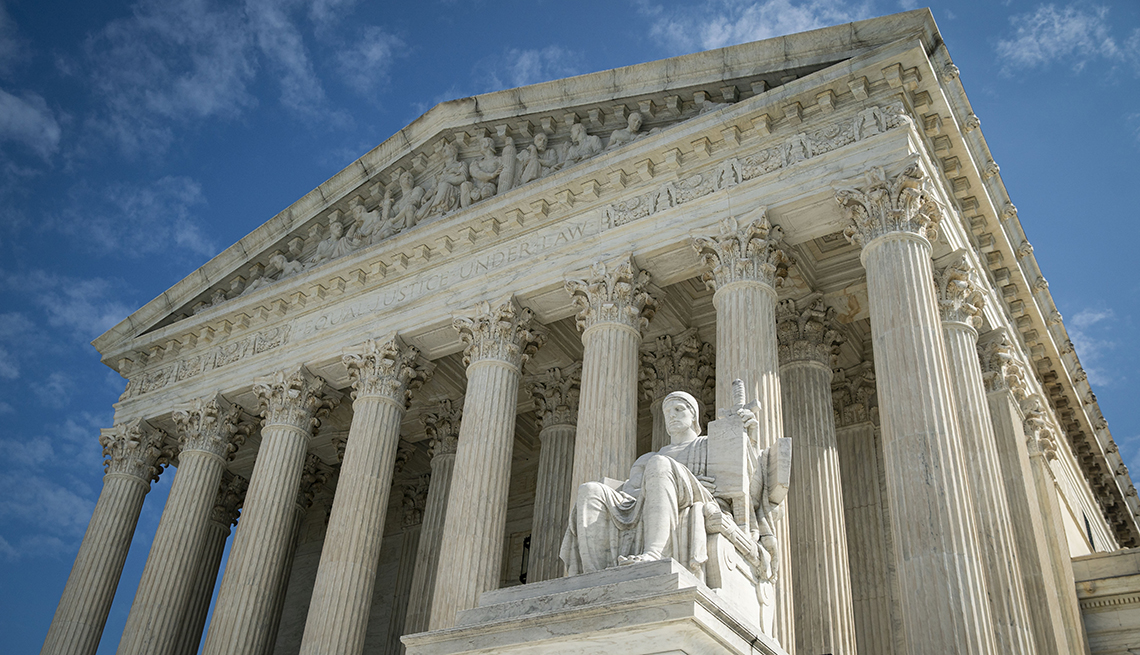AARP Hearing Center
Millions of Americans will continue to have access to affordable and quality health care with the rejection by the U.S. Supreme Court Thursday of a challenge to the Affordable Care Act (ACA).
The high court ruled in a 7-2 decision that those challenging the constitutionality of the ACA — 18 states led by Texas, and two individuals — did not have the legal right to contest the law. Those bringing this lawsuit didn’t have what is called “standing” to bring the case “because they have not shown a past or future injury” due to the law, Justice Stephen Breyer wrote in the majority opinion.
“Today’s ruling is a tremendous relief for the millions of Americans who benefit from the ACA and count on the health law’s protections, even as our nation continues to cope with the pandemic,” said Nancy LeaMond, AARP executive vice president and chief advocacy and engagement officer. “More than a decade after its enactment, the ACA is now an integral part of the nation’s health care system and economy, and many older adults rely on it for their health, safety, and financial stability. We are thrilled that today’s decision preserves the benefits of the ACA for our members and for all Americans.”
At issue in the lawsuit was whether the ACA was invalidated by Congress’ 2017 decision to zero out the penalty on taxpayers who failed to abide by the so-called individual mandate that required most Americans to have health insurance or pay a penalty. Those challenging the law said eliminating that tax penalty made the whole ACA unconstitutional. In December 2019, the 5th U.S. Circuit Court of Appeals ruled that Congress’ action made the individual mandate unconstitutional and ordered a review of all provisions of the law.
But the Supreme Court did not rule on the substance of the case, deciding instead that those bringing the challenge could not show they have been harmed by the law, and so the justices dismissed the challenge. With this decision, the ACA has survived three high court challenges and a slew of attempts to get Congress to repeal the law.
Before the Supreme Court held oral arguments in the case last year, AARP and AARP Foundation had joined 17 states and many other advocacy organizations in asking the high court to overturn the lower court ruling and maintain the 2010 law. At the time, Nancy LeaMond, AARP executive vice president and chief advocacy and engagement officer, said invalidating the ACA would be “catastrophic.”
In their brief, AARP and AARP Foundation pointed to the myriad ways the American health care system would be upended, and how two programs especially essential to older Americans — Medicare and Medicaid — would be disrupted:
- Medicare: The program’s more than 62 million beneficiaries would lose the law’s free preventive services and the provisions that help expand the financial viability of the program.
- Loss of health care coverage: More than 20 million people would lose health care coverage, including 13 million people who are now covered as a result of 38 states and the District of Columbia expanding their Medicaid programs.
- Preexisting conditions: Insurers would no longer be prevented from charging people with preexisting conditions higher premiums or refusing to insure them. More than 100 million Americans are estimated to have one or more preexisting conditions.
- Age tax: If the law were invalidated, insurers would again be allowed to charge older adults premiums that are more than triple what they charge younger policyholders, simply because of their age.
- Adult children: Children under the age of 26 would no longer be guaranteed coverage under their parents’ health insurance policies.
- Long-term care: Increased quality and safety improvements in nursing homes and other long-term care facilities would no longer be guaranteed.
Dena Bunis covers Medicare, health care, health policy and Congress. She also writes the Medicare Made Easy column for the AARP Bulletin. An award-winning journalist, Bunis spent decades working for metropolitan daily newspapers, including as Washington bureau chief for the Orange County Register and as a health policy and workplace writer for Newsday.































































